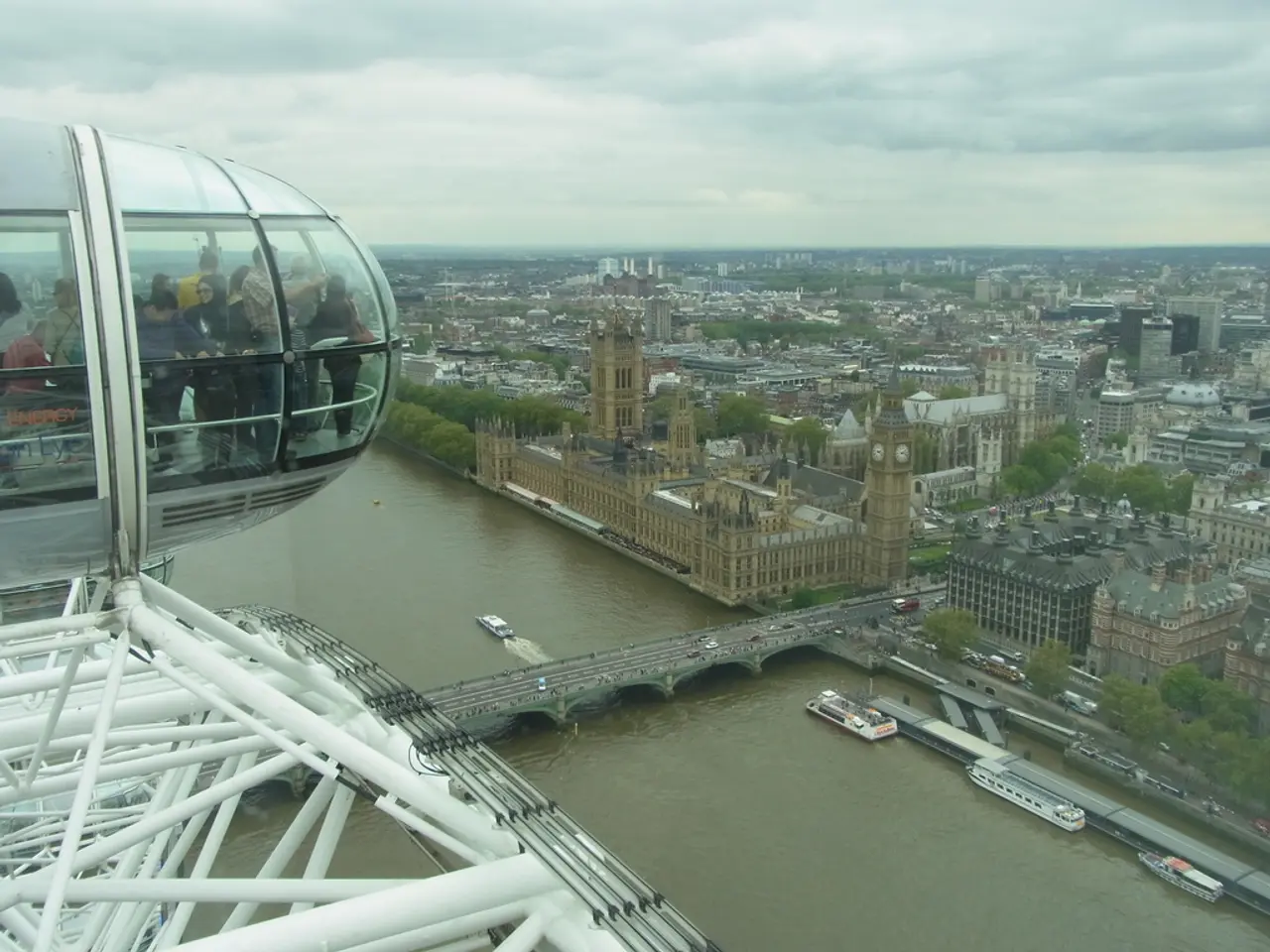Steady UK inflation could potentially result in elevated interest rates of up to 7%, economists have cautioned.
The UK economy has experienced a surprising surge in recent months, outperforming initial expectations. This growth can be attributed to a variety of factors, including near-record job vacancies and a rise in average workers' pay among the highest levels seen in two decades. However, the country is currently grappling with the highest inflation rate in the G7, a problem that shows no signs of abating soon.
The Bank of England, which lowered interest rates to record lows during the Covid pandemic, has begun to raise them again since December 2021. This move was prompted by mounting inflationary pressures, with the central bank being criticised by some, including former deputy governor Charlie Bean, for being 'too slow to wake up' to these risks.
The persistence of high inflation is partly due to companies rebuilding their profit margins after last year's energy price shock. This rebuilding process, combined with employers offering higher wages to attract staff and workers seeking larger pay rises to compensate for inflation, has contributed to the ongoing inflationary pressures.
The Bank of England's base rate has already been increased by a half point to 5%, leading mortgage lenders to respond by increasing rates and withdrawing cheaper deals. This has put households under pressure from rising mortgage costs. Economists have expressed concerns that continued high interest rates could drive the economy into recession.
Financial markets predict that the Bank could increase its base rate above 6% before Christmas, with JP Morgan warning that rates could go even higher, possibly reaching 7%, under certain scenarios. Goldman Sachs has predicted that the Bank of England's peak interest rate will exceed 6% before Christmas.
The Bank of England may consider raising interest rates to as high as 7% in an effort to curb inflation. However, this could increase the risk of a 'hard landing' for the British economy next year.
The UK's services sector showed a sustained upturn in June, with job creation at a nine-month high, according to the latest monthly health check. Despite this, Bean, the former deputy governor, said there was a 'way to go' before inflationary pressures in the jobs market would fade.
In conclusion, the UK economy is facing significant challenges as it navigates high inflation and rising mortgage rates. While the economy has shown resilience in recent months, the potential for a recession looms large, highlighting the need for careful consideration and strategic action from the Bank of England and the government.
Read also:
- A Business Model Explained: Its Purpose and Benefits for Your Venture
- Trump administration faces lawsuit by Denmark's Ørsted over halted wind farm project
- U.S. takes a pledge of $75 million to foster Ukrainian resources development
- Deep-rooted reinforcement of Walkerhughes' acquisitions through strategic appointment of Alison Heitzman






